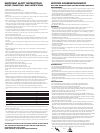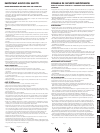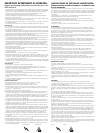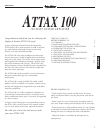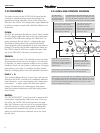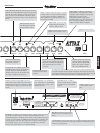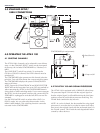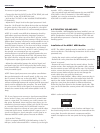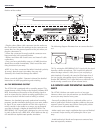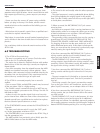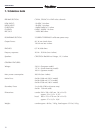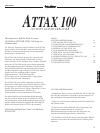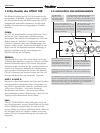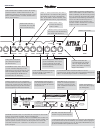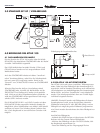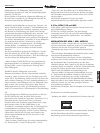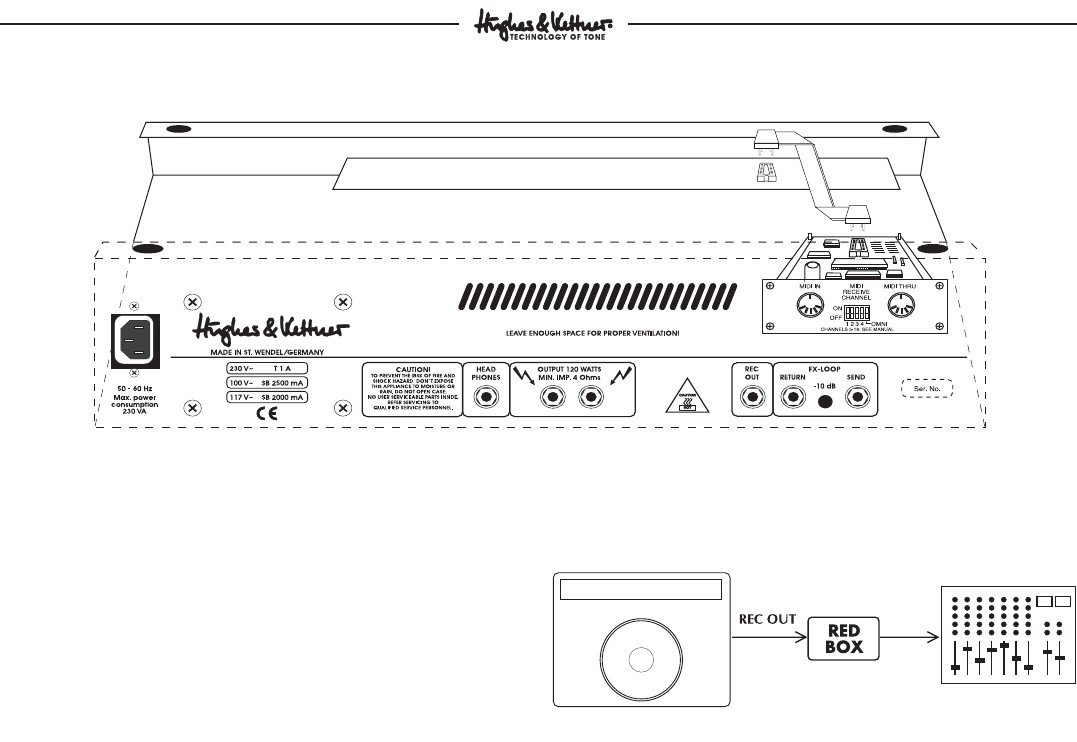
10
ATTAX-MANUAL
Position of the sockets.
- Plug the other ribbon cable connector into the socket on
the circuit board. Note the markings on the connector and
ensure they face the grooved portion of the jack when you
plug the connectors in.
- Ensure the connector fits snugly and the connector mar-
kings match the jack's grooved portion.
- Replace and fasten the chassis cover and insert all cable
connections.
- Once you have switched the amp on, all MIDI functions
should be accessible immediately. Check out all the swit-
ching functions of your amp.
NOTE: If you have connected the MSM-1 Module's polarity
in reverse, then the amp's secondary fuse may trip.
Generally, this should not damage the MSM-1.
Please consult the MSM-1 Operator's Manual for detailed
instructions on MIDI programming and switching.
4.4 THE RECORDING OUTPUT
The ATTAX 100 is equipped with a recording output. This
output features a filter, similar to the Hughes & Kettner RED
BOX, that enhances the quality of the recording signal to
such an extent that, for routine recording applications, you
don't need to deal with the hassle of miking a cabinet.
However, for absolutely top-notch professional recording
purposes, speaker simulation delivers an even more authen-
tic signal. If you want to feed the ATTAX 100's signal to a
mixing console in the studio or on stage, we recommend
you route it through a Hughes & Kettner RED BOX. The
RECORDING OUT signal path is designed so you can simp-
ly patch it directly into a RED BOX, which balances the sig-
nal and delivers sophisticated speaker simulation.
The following diagram illustrates how to connect the devi-
ces:
TIP: Try mixing the RECORDING OUT signal with the signal
from the cabinet microphone. This is especially effective
when the stage volume is fairly low or you are playing a
quiet interlude. Generally, the sound will be better than if
you use just the microphone signal. Another advantage is
that the RECORDING OUT signal delivers a sufficient level
for the mixing console even at low volume levels.
5.0 SERVICE AND PREVENTIVE MAINTEN-
ANCE
The ATTAX 100 does not require service of any type.
However, there are a few precautions you should heed to
ensure your amp lasts for many years.
- Ensure all peripheral devices, cords and cables are in a
state of good repair. Defective speaker cables are the most
common cause of power amp failure. Poor-quality cables
will cause hum and undesirable noise.
- Make certain your amp's ventilation ducts are not blocked
or covered. Proper cooling will prolong the life of your
amp.
- Avoid mechanical shocks and exposure to extreme heat,
dust and especially moisture.



